It is better to discuss things, to argue and engage in polemics than make perfidious plans of mutual destruction

It is better to discuss things, to argue and engage in polemics than make perfidious plans of mutual destruction
Mikhail Gorbachev, the former leader of the Soviet Union, is often hailed as a visionary leader who played a crucial role in ending the Cold War and bringing about significant political reforms in his country. One of the key aspects of Gorbachev's leadership style was his emphasis on open dialogue, discussion, and engagement in polemics rather than resorting to perfidious plans of mutual destruction.Gorbachev understood the importance of communication and dialogue in resolving conflicts and building trust among nations. He believed that open and honest discussions were essential in finding common ground and reaching mutually beneficial agreements. Gorbachev's willingness to engage in dialogue with Western leaders, such as US President Ronald Reagan, played a crucial role in easing tensions between the two superpowers and ultimately led to the signing of landmark arms control agreements like the INF Treaty.
Gorbachev's commitment to dialogue and engagement was also evident in his domestic policies. He introduced a series of political and economic reforms, known as perestroika and glasnost, which aimed to promote transparency, accountability, and open debate within the Soviet Union. These reforms encouraged people to voice their opinions, engage in discussions, and challenge the status quo, leading to a more open and democratic society.



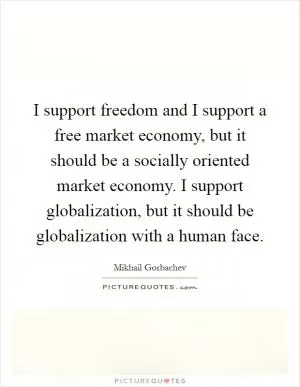
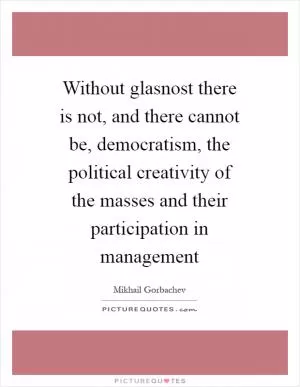

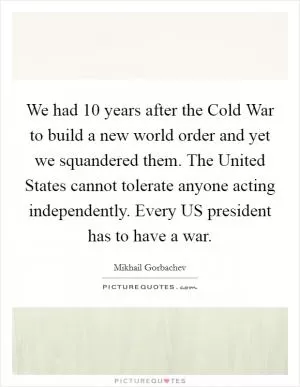
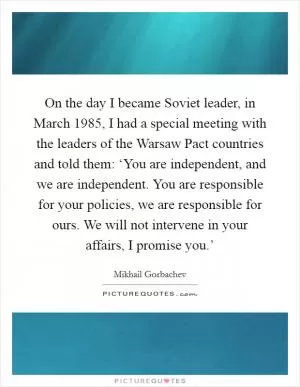
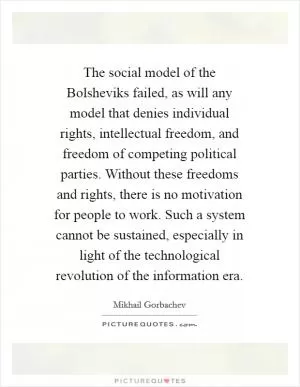
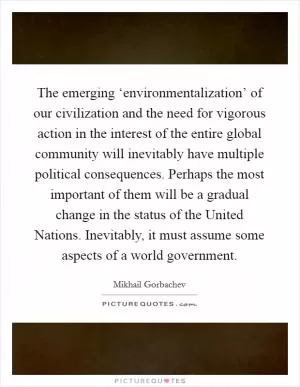
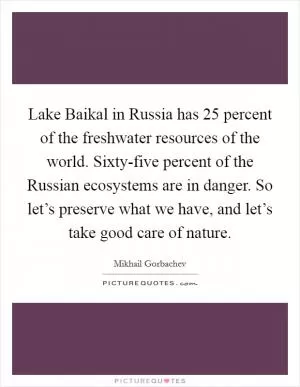

 Friendship Quotes
Friendship Quotes Love Quotes
Love Quotes Life Quotes
Life Quotes Funny Quotes
Funny Quotes Motivational Quotes
Motivational Quotes Inspirational Quotes
Inspirational Quotes